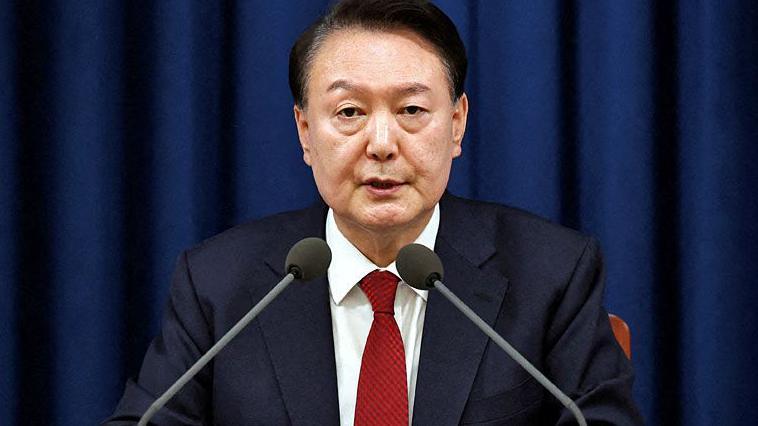South Korea's leading corporations are in crisis mode after President Yoon Suk Yeol declared martial law late Tuesday, the first such declaration since 1979. The announcement sent shockwaves through the country’s business landscape, prompting Samsung, SK Group, LG, and other major conglomerates to hold emergency meetings throughout the night to assess potential impacts.
At Samsung, executives immediately convened after the martial law declaration at 10:20 PM. Senior officials from various affiliates, including Samsung Electronics, gathered the following morning to discuss possible responses and minimize disruption. The company, along with other giants, has been closely monitoring the political situation and its effects on the national economy.
SK Group, a key player in the country’s business ecosystem, also called urgent meetings. Choi Chang-won, head of the SK Supex Council, assembled high-level officials to consider both internal and external ramifications of the martial law announcement. Their focus was on maintaining operations amidst market uncertainties and possible financial risks.
LG Electronics followed suit, organizing urgent discussions regarding fluctuating exchange rates and market instability. The company, headquartered in the heart of Seoul near the National Assembly, even advised employees to work from home due to the volatile situation in the area. This measure underscored the company's concern for employee safety and its response to the political unrest.
Meanwhile, Hyundai Motor and Hanwha also issued warnings, closely watching developments. HD Hyundai called for a CEO-level meeting at 7:30 AM the following day, emphasizing the urgency of the situation. The company stressed the importance of an "emergency management mindset," particularly in addressing financial risks like fluctuating exchange rates and potential manufacturing disruptions.
Industry leaders from top economic groups, including the Korea Chamber of Commerce and Industry (KCCI) and Korea International Trade Association (KITA), have remained mostly silent, but sources indicate that they are actively monitoring the fallout from the martial law. Business groups were quick to recall a similar situation in 2016, when the country faced another political crisis with the impeachment of then-President Park Geun-hye. In that instance, businesses focused on stabilizing the economy while leaving legal decisions to the court system.
The martial law incident, although lifted after only six hours, has caused lasting damage to South Korea’s international reputation. One industry insider remarked, “The whole world knows about it.” Korean companies, particularly those operating internationally, now face the challenge of addressing concerns from global clients about the country’s political volatility.
As US President-elect Donald Trump prepares to take office, experts stress that South Korea’s export-dependent economy must navigate the potential risks of increasing tariff pressures from the new US administration. Some argue that the sudden declaration of martial law has already hurt Korean businesses, damaging their global standing. “Lawmakers must act quickly to settle the political rupture,” one industry source said, “to support business activities and avoid further harm.”
Despite the political turmoil, major conglomerates like Samsung Electronics have shown resilience. However, as of Wednesday afternoon, Samsung's stock price had dropped by 0.93%, reflecting the market’s response to the uncertainty.
KOREAHERALD
Read More






 Saturday, 31-01-26
Saturday, 31-01-26







